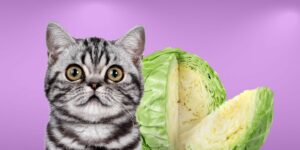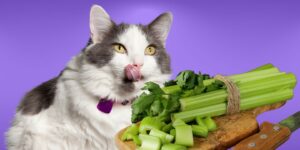Yes, cats can eat pumpkins. In fact, pumpkin can be a healthy and tasty treat for cats in moderation. However, it is important to feed pumpkin to your cat in the right way and in the right amount to avoid any potential health issues.
Why Consider Pumpkin for Cats
Pumpkin is a nutritious and versatile food that can offer several health benefits for cats. It is high in vitamins, minerals, and fiber, and can help support digestive health, weight management, and urinary health.
Debunking Common Myths about Cats and Pumpkin
There are some misconceptions about cats and pumpkin, such as the idea that pumpkin can only be fed to cats during the fall season. In reality, pumpkin can be fed to cats year-round as long as it is properly stored and prepared.
Nutritional Content of Pumpkin
Pumpkin is packed with essential nutrients that can benefit your cat's health.
Vitamins and Minerals
Pumpkin is rich in vitamins A, C, and E, as well as minerals like potassium, iron, and magnesium, which are important for your cat's overall health.
Fiber Content
Pumpkin is an excellent source of fiber, which can help support your cat's digestive health and prevent constipation.
Low Calorie and Low Fat
Pumpkin is low in calories and fat, making it a great treat for cats who are overweight or have other health conditions that require them to follow a low-fat diet.
Potential Health Benefits of Pumpkin for Cats
Feeding pumpkin to your cat can offer several health benefits.
Digestive Health
Pumpkin's high fiber content can help prevent constipation and reduce diarrhea by adding bulk to your cat's stool and absorbing excess water.
Weight Management
Due to its low calorie and low-fat content, pumpkin can be an excellent treat for cats who need to lose weight or maintain a healthy weight.
Urinary Health
Pumpkin is a natural source of moisture, which can help keep your cat hydrated and support their urinary health.
Hairball Prevention
The fiber in pumpkin can help move hair through your cat's digestive system, preventing the formation of hairballs.
Precautions and Potential Side Effects
While pumpkin can offer several health benefits for cats, it is important to be aware of the potential risks and side effects.
Allergic Reactions
Some cats may be allergic to pumpkin or develop an intolerance. If your cat experiences vomiting, diarrhea, or other symptoms after consuming pumpkin, consult your veterinarian.
Nutrient Imbalances
Feeding too much pumpkin can cause nutrient imbalances in your cat's diet, as it can be high in carbohydrates and low in protein.
Digestive Issues
Feeding large amounts of pumpkin can lead to digestive issues, such as diarrhea or constipation. It is important to introduce pumpkin slowly and feed it in moderation.
Types of Pumpkin Products for Cats
When feeding pumpkin to your cat, it is essential to choose the right kind of product.
Fresh Pumpkin
Fresh pumpkin should be cooked and pureed before feeding it to your cat. Avoid feeding raw pumpkin, as it can be difficult for cats to digest.
Canned Pureed Pumpkin
Canned pureed pumpkin is a convenient option, but make sure to choose a product without added sugar or spices.
Pumpkin Supplements and Treats
Pumpkin supplements and treats designed specifically for cats are also available and can provide additional nutritional benefits.
Preparing and Serving Pumpkin for Cats
When feeding pumpkin to your cat, it is important to properly prepare and serve it.
Cooking Fresh Pumpkin
Cook fresh pumpkin by steaming or baking it until it is soft, then puree it in a food processor.
Storing Pumpkin
Store cooked or canned pumpkin in an airtight container in the refrigerator for up to a week, or in the freezer for up to three months.
Serving Suggestions
Mix a small amount of pureed pumpkin into your cat's regular food, or offer it as a treat. Start with a tablespoon or less and gradually increase the amount as needed.
Frequently Asked Questions
Can Cats Eat Pumpkin Seeds?
Cats can safely consume small amounts of pumpkin seeds, but they should be roasted and unsalted.
Can Cats Eat Pumpkin Leaves and Stems?
Cats should not eat pumpkin leaves and stems, as they can be difficult to digest and may cause discomfort.
Can Cats Eat Raw Pumpkin?
Raw pumpkin is not recommended for cats, as it can be difficult to digest and may cause gastrointestinal issues.
Alternative Foods for Cats with Similar Benefits
If your cat doesn't enjoy pumpkin or if you're looking for additional healthy treat options, consider these alternatives:
Sweet Potatoes
Sweet potatoes are another nutritious and low-calorie treat that can be fed to cats in moderation.
Squash
Squash, like pumpkin, is high in fiber and vitamins and can be a healthy treat option for cats.
Green Beans
Green beans are low in calories and rich in fiber, making them a great alternative for cats who need to lose weight or maintain a healthy weight.
In conclusion, pumpkin can be a healthy and tasty treat for cats when fed in the right way and in the right amount. It is important to use cooked and pureed pumpkin and to feed it to your cat in moderation to avoid digestive issues. Talk to your veterinarian for personalized advice on how to incorporate pumpkin into your cat's diet.











